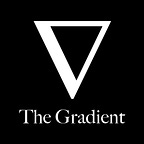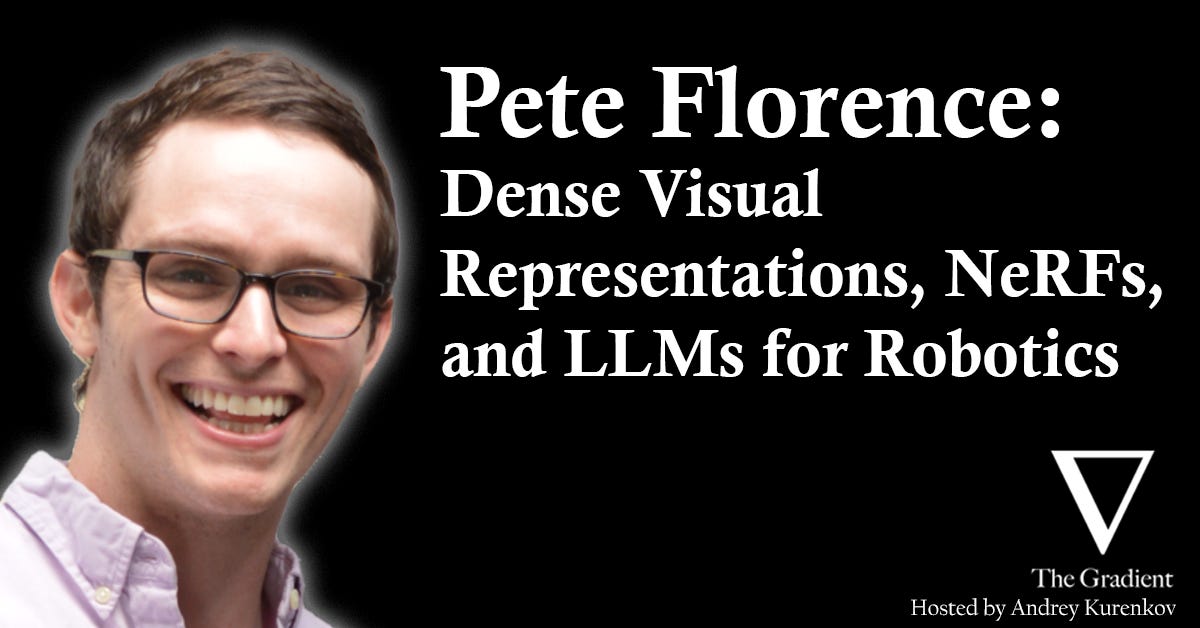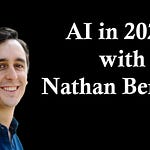In episode 54 of The Gradient Podcast, Andrey Kurenkov speaks with Pete Florence.
Note: this was recorded 2 months ago. Andrey should be getting back to putting out some episodes next year.
Pete Florence is a Research Scientist at Google Research on the Robotics at Google team inside Brain Team in Google Research. His research focuses on topics in robotics, computer vision, and natural language -- including 3D learning, self-supervised learning, and policy learning in robotics. Before Google, he finished his PhD in Computer Science at MIT with Russ Tedrake.
Subscribe to The Gradient Podcast: Apple Podcasts | Spotify | Pocket Casts | RSS
Follow The Gradient on Twitter
Outline:
(00:00:00) Intro
(00:01:16) Start in AI
(00:04:15) PhD Work with Quadcopters
(00:08:40) Dense Visual Representations
(00:22:00) NeRFs for Robotics
(00:39:00) Language Models for Robotics
(00:57:00) Talking to Robots in Real Time
(01:07:00) Limitations
(01:14:00) Outro
Papers discussed:
Aggressive quadrotor flight through cluttered environments using mixed integer programming
High-speed autonomous obstacle avoidance with pushbroom stereo
Dense Object Nets: Learning Dense Visual Object Descriptors By and For Robotic Manipulation. (Best Paper Award, CoRL 2018)
Self-Supervised Correspondence in Visuomotor Policy Learning (Best Paper Award, RA-L 2020 )
iNeRF: Inverting Neural Radiance Fields for Pose Estimation.
NeRF-Supervision: Learning Dense Object Descriptors from Neural Radiance Fields.
Socratic Models: Composing Zero-Shot Multimodal Reasoning with Language.
Inner Monologue: Embodied Reasoning through Planning with Language Models
Code as Policies: Language Model Programs for Embodied Control













